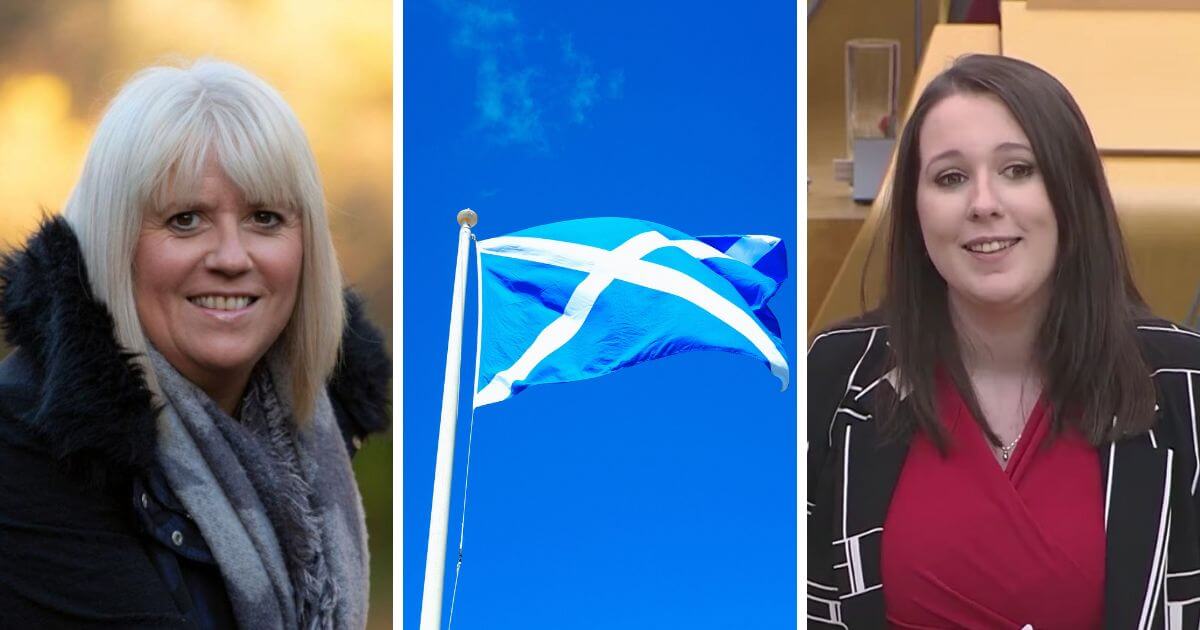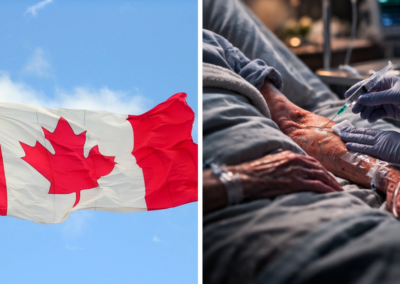A senior Conservative MSP has come out in opposition to making assisted suicide legal in Scotland, citing her concerns about “legislative creep”.
Earlier this week, Sue Webber, MSP for Lothian and Convenor of Holyrood’s Education, Children and Young People Committee, told The Herald that she had changed her mind on assisted suicide after becoming an MSP.
“I was pro-assisted [suicide] until I got in here. It’s the reality of the fact that my vote actually makes a difference now. When I was out I could have an opinion, but there was actually no consequence to that opinion”.
“I’m in here now. And being in that role of legislating I don’t think I would be able to feel comfortable knowing that one person has died because of a decision that I’ve taken”.
The MSP for Lothian went on to suggest that if hospice services were improved “no one would have a bad death”.
“Before you know, it’s not the legislation that we passed”
Despite assurances from Liam McArthur, the Liberal Democrat MSP who proposed the Assisted Dying for Terminally Ill Adults (Scotland) Bill, Webber is still concerned about safeguarding and the likelihood of the legislation expanding. She said that Holyrood “hasn’t got the best record of safeguarding in legislation. So my confidence in us as a Parliament isn’t there”.
“If you allow one group to ask to die, then what’s to stop another group saying no, no, we need to let these group[s] of patients [or] people pass”.
“And a wee amendment here, whatever it is, before you know, it’s not the legislation that we passed”.
Webber’s statements have come just a week after Emma Roddick, Minister for Equalities, Migration and Refugees, told The Herald that she “will not be voting for the legislation”.
“I have been meeting regularly for the last few years with groups and individuals who hold opinions across the spectrum to try to get to a position I’m sure about, and I don’t see how this legislation can be safe while disabled people don’t have equality”.
Though Scotland’s assisted suicide bill is likely to be introduced and voted on later this year, these two senior MSPs join the First Minister, Humza Yousaf, and Health Secretary, Michael Matheson, in their opposition to introducing assisted suicide.
After meeting with a disability advocacy group, Glasgow Disability Alliance, in September last year, Yousaf said that he felt “even less persuaded” that assisted suicide should be made legal in Scotland.
According to The Herald, Michael Matheson, the Health Secretary, said he was opposed to a change in legislation because he thought such a law would put pressure on sick and disabled people to choose assisted suicide.
The text of the bill has not yet been introduced into the Scottish Parliament and no vote has taken place. However, the Government in Westminster might block such legislation if aspects of it were deemed to clash with legislation reserved for Westminster or have implications that would affect the whole UK.
Being a burden
If the Bill passes, Scotland would become the only part of the UK in which assisted suicide would be legal. It is legal in a number of jurisdictions including the Netherlands and Canada, where 13,241 people ended their lives by euthanasia or assisted suicide in 2022. There were 3,149 more deaths than in 2021, which had also seen a more than 30% increase from the year before.
17.1% of those who died by euthanasia or assisted suicide cited loneliness as their reason for wanting to end their lives, while 35.3% were concerned about being a “burden on family, friends or caregivers”.
Similarly, in Oregon, which UK assisted suicide campaigners, Dignity in Dying, regularly cite as a model for rolling out legislation to the UK, among the end-of-life concerns listed by those who ended their lives, almost half (46.4%) of those who ended their lives reported being concerned about being a “[b]urden on family, friends/caregivers”, and 6.1% said they were concerned about the “[f]inancial implications of treatment”.
A study in Ireland found that almost three-quarters of people over 50 who had previously expressed a wish to die no longer had that desire two years later.
A survey conducted earlier this year of a thousand adults in Canada found 27% would support “poverty” being a reason for euthanasia and 28% would support “homelessness” being a reason for euthanasia.
Spokesperson for Right To Life UK, Catherine Robinson, said “It’s encouraging that so many senior MSPs recognise the inherent danger of assisted suicide legislation. Once the state provides the means for certain groups of people to end their own lives, as other jurisdictions have shown, it is extremely difficult if not impossible to prevent that list from expanding. If assisted suicide were to be made legal, we would risk becoming a contradictory society that does all it can to prevent and discourage suicide among some members but actively encourages and provides the means for suicide among others”.












